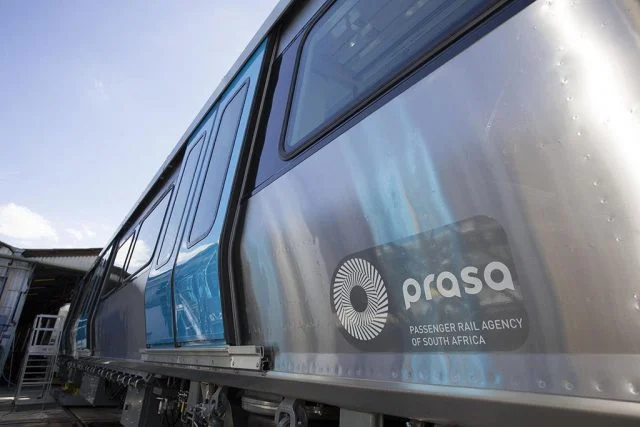By Simon Nare
President Cyril Ramaphosa has promised a masterplan to fix the rail system that he argues will be the future of rail in the country and cover all the major cities.
The president said in in his weekly newsletter that the system would include a high-speed train for long distances and work was underway to finalise the plan.
“Work is underway to develop a National Rail Masterplan that will lay out the future for rail in South Africa. Among other things, the masterplan will cover passenger rail in our cities, including rapid rail.
“It will also cover high speed rail over long distances between centres. The substantial work required to develop the masterplan is expected to be completed by the end of next year,” he said in the newsletter.
Ramaphosa said that as the country celebrated transport month in October, the nation needed to recognise that affordable public transport reduced the cost of living for millions.
He admitted that the country’s public transport was in a poor state but blamed poor investment in the sector.
He added that efficient, safe and affordable movement of people and goods around the country was essential for economic growth.
“People need to be transported to workplaces, clinics, hospitals and schools. When our transport system works well, then the cost of doing business is lowered and our country’s products and services are more competitive,” wrote the president.
Ramaphosa said goods that were produced from mines, factories and farms to the country’s markets and international markets through the ports needed to be moved.
“Without affordable and reliable alternatives, households spend a large proportion of their income on transport. Fixing public transport therefore plays a big role in reducing poverty.
“A particular area of focus for this administration is the development of rail as the backbone of transport in South Africa,” he said.
Ramaphosa said much progress had been made in restoring urban passenger rail to full service and the Passenger Rail Agency of South Africa has to date restored 31 out of 40 priority rail corridors back to operation.
Further, he said by March this year, 40 million passengers were using public trains, nearly three times more than the year before.
“Last year we set up the National Logistics Crisis Committee (NLCC) to address our logistics challenges, particularly in a number of goods transportation corridors.
“Transnet, business and labour are working together to increase the volume of freight that is carried on our rail corridors to be transported to our ports.
“The NLCC is supporting the implementation of the Freight Logistics Roadmap. The roadmap covers areas such as the security of the rail network, operational improvements and capital investment,” he said.
The president said Transnet was expected to finalise a Network Statement by the end of the year. This would facilitate access by third-party operators to the rail network.
By 2029, the rain lines needed to be transporting at least 250 million tonnes of freight a year, he said.
INSIDE POLITICS

